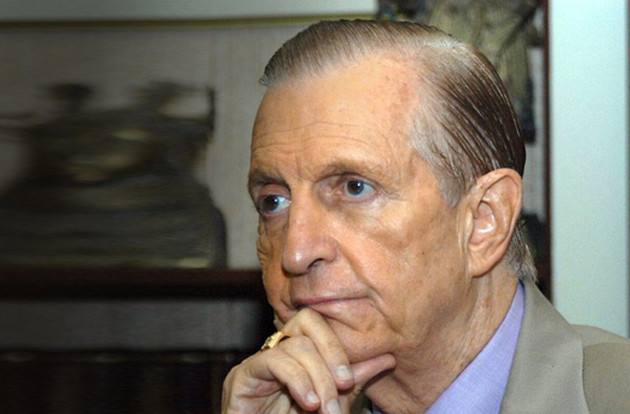(JAMAICA GLEANER) Former Prime Minister Edward Seaga has made public his distaste for modern dancehall music, which he describes as lacking in substance.
“We seem to be searching, but fruitlessly. After a run of all the different basic rhythms that we have developed, we have cooled off into dancehall. I am not going to say anything disparaging about that except that I don’t like it.
“I am a man that when I think music, I think melody. I think lyrics. I think rhythm, but I see them all together, packaged in one thing, and my basic concept is that if you can’t whistle it, it is not music,” he declared during the recent official reopening of Things Jamaican at Devon House, St Andrew.
Seaga, who is credited with producing Many, Oh (Higgs and Wilson) in 1960, the first Jamaican hit record pressed on vinyl for commercial production, used the occasion to remind the audience of his formula for success, which has stood the test of time.
“I had to recognise that where you begin is not with the concept, but with the material, and the material in music is the tunes. The material is the folk music – and you heard some of it this evening being revived after such a long time – and a new version of Jamaican folk music, which I endorse.”
He was referring to a splendid rendition of mento classics performed by the Rhumbakah band, compromising young men from the Charlemont High School, St Catherine. Their spot-on rendition of favourites such as Sly Mongoose, complemented by their flawless performance of the accompanying age-old dance moves and mastery of instruments, elicited strong applause.
The elder statesman went on to explain that key to the success of the ska era was the bottom-up approach, which, he believes, is a template for development in other spheres of business.
“Once again, I turned my mind to get that music going at a different level, popular level, (because) not any and every Jamaican would be interested in the mento class of music, which the young men played here tonight. And the brand of Jamaican music that evolved, in which I played a part, has become not a sideline music. Not a marginal music, but a mainstream popular music, and it has become that because it has melody, it has rhythm, it has lyrics, and it had Bob Marley.
“Because in whatever you do, you need some stars, and if you don’t have the stars, you don’t have the attraction … . And I have always asked myself, ‘How come we hit the mainstream in the world without going into the level of the people who went to university and who are at the top of the ladder? How come is at the bottom of the ladder we had to start?’ That’s where the genius was!”
The former prime minister pointed out that Brand Jamaica was built on the creativity and hard work of ordinary Jamaicans through the avenues of culture and sports, with little support from corporate Jamaica.
“They are the ones who have put Jamaica where Jamaica is. We didn’t get there because of some rich merchant somewhere. We didn’t get there because of banks. They didn’t work with banks. They worked with their hands, but we got there because these people at that level had something to say about the environment in which they lived and to say it creatively, and so Jamaica today is well known.”

